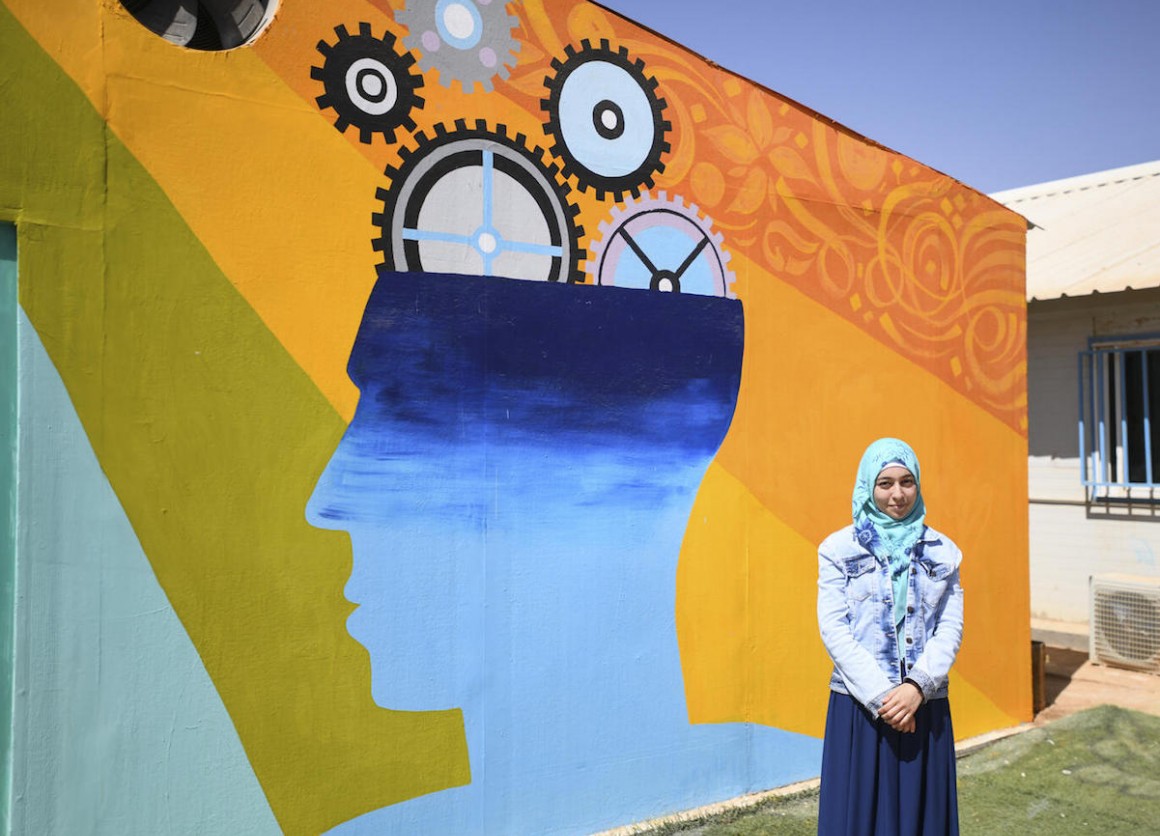Young people have always been uniquely vulnerable when it comes to mental health. Even before the COVID-19 pandemic hit, one in seven young people were estimated to be experiencing mental challenges. The lasting effects of the pandemic and persistent threats of violence, conflict and humanitarian emergencies have all combined to make that burden even greater.
Half of all mental health conditions start by the age of 14, but most go undiagnosed and untreated. Stigma often prevents young people from feeling they can speak out about what is on their mind or ask for help. When mental health issues go unaddressed, they risk not just harming a young person’s childhood, but also their future.
Yet despite the scale of the global challenge facing young people, on average just 2 percent of government health budgets globally are allocated to mental health. Support for youth mental health promotion and prevention is particularly low. We pay a high price for this neglect — an estimated $387.2 billion in lost human potential that could go towards national economies each year.
The cost in terms of how it affects real lives, however, is incalculable.
Stigma and lack of resources often prevent young people from seeking mental health support
At UNICEF, our mandate is to work for every child, to save and protect the lives of the world’s most vulnerable children. Focusing on young people’s mental health is key for us to be able to do this.
Currently our mental health programming reaches 47 million children and caregivers in 130 countries, with the ambition to expand to 190 countries in the coming years. The programming supports children and their families in emergencies, including those fleeing conflict, as well as community programming, support for parents, caregivers and teachers, and advocacy campaigns to reduce stigma.
But UNICEF cannot do this work alone — global challenges require a global response, through leadership, commitment and innovation.
That’s why in April 2022, UNICEF joined forces with Z Zurich Foundation to set out on a mission to mobilize public and private sector investment through the creation of the Global Coalition for Youth Mental Well-being.
The Coalition aims to pool the resources and networks of its members to create a global platform to drive forward investment and action. Through collective action, the Coalition will work to strengthen young people’s social and emotional skills and provide a supportive environment for mental well-being, benefitting 30 million young people in 30 countries by 2030.
A public-private partnership to improve mental well-being for young people around the world
Today, three leading global companies — Jo Malone London, Spotify, and Zurich Insurance Group — have joined the Coalition and will play a leading role to help drive change. They will engage their employees and networks to address stigma, raise awareness, increase private and public investment for mental health programming and improve business practices related to workplace mental health.
“Children and young people are our future, and we should be doing everything we can to invest in the support they need, said Carla HAddad Mardini, Director of UNICEF’s Private Fundraising and Partnerships Division in Geneva. “Failure to do so leaves them vulnerable to greater distress and at risk of missing out on life chances, limiting their future potential.”
“Businesses have a crucial role to play in raising awareness and helping to drive more investment and action,” she continued. “I want to say thank you to Jo Malone London, Spotify, Z Zurich Foundation and Zurich Insurance Group for showing global leadership on this issue and urgently encourage others to do the same.”
Egette Indelele, 23, was born in a refugee camp in Tanzania and moved to the U.S. at the age of 8. The difficulties she encountered growing up in in her adopted country led her to become a mental health advocate to support others going through the same experience.
“Many people think that the trauma is over when you leave your country. This just isn’t true,” says Indelele. “When we moved to the U.S., we brought all our trauma with us and didn’t have the time or resources to handle it appropriately — learning a new language and starting a new life without any time to process the experiences they have just lived through. Refugees’ problems are far from over when they leave their home country.”
Indelele now works to help ease the transition to American life for other young refugees by providing access to much-needed mental health services, addressing one of the greatest challenges they face, but one of the hardest to see.
It is lives like those of Indelele’s that will be touched and changed by the work of the Coalition. You too can add your voice and be part of the movement of change. Become a Coalition member today.
ADD CONTACT INFORMATION HERE?
Zeinab Hijazi is UNICEF’s Senior Mental Health Technical Advisor.
Top photo: Salam was only 11 when war in Syria forced her family to leave their home in Homs and flee to Jordan for safety. Eight years later, she is still working to recover from the psychological impacts of growing up amid conflict compounded by the stress of becoming a refugee. “Good mental health, in my opinion, is a state of mind where, despite challenges and difficulties, you reframe your thinking through optimism and giving positive energy to others, despite what you are feeling,” she says. © UNICEF/UN0719121/Bseiso
